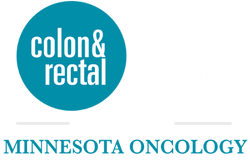Anorectal Surgery Post-Operative Information
Most anorectal surgical procedures are done in same-day surgery. A few, more extensive procedures require hospitalization for one to three days. Your ability to tolerate the pain postoperatively and your doctor’s concern about your wounds determine the time of discharge.
- A prescription for narcotic pain medication with instructions. If you need additional medication, call your doctor during normal business hours. Our policy is that we do not refill pain medication prescriptions after hours or on weekends because your chart is not available. The doctor on call is not allowed to refill your prescription.
- Bulk-forming stool softeners (such as Konsyl-DR®, Metamucil® or Citrucel®) are to be taken in a glass of water once in the morning with increased water throughout the day.
- Anal ointment (such as Americain®, Tronothane® or Xylocaine®) should be applied to the anal area with your finger then covered with cotton or gauze.
Bowel movements after anorectal surgery are usually associated with moderate to severe discomfort. Constipation and diarrhea make the pain much worse and must be avoided. The trauma to the anal wounds caused by hard bowel movements will slow down the healing process.
You should be sure to have a bowel movement at least every other day. If two days pass without one, take one tablespoon of milk of magnesia; if there is no result, repeat this dose in six hours. You may also use an over-the-counter phosphate enema or tap water enema.
Diarrhea, usually caused by overuse of laxatives, is also a concern if you have more than three watery bowel movements during a 24-hour period. If diarrhea occurs, stop taking milk of magnesia or other laxatives. Continue the bulk-forming agents. If diarrhea persists, call your doctor.
After bowel movements, use a wet washcloth, toilet paper or cotton to clean yourself. If possible, take a sitz bath or tub bath immediately. Baths should last 10-15 minutes with the water as warm as you can comfortably tolerate. Try to take at least three baths (or showers with hand-held sprayer) every day.
Some bloody discharge after bowel movements is normal for at least two to four weeks after rectal surgery. If you have profuse, continuous bleeding, call your doctor immediately. Post-operative infection around the rectal opening is surprisingly uncommon despite the obvious contamination by stool. This is probably because of the excellent blood supply to the area.
If you have trouble urinating, do so while sitting in a tub of water, or run the water faucet while sitting on the toilet. If the problem is severe or persistent, your doctor may prescribe oral bladder stimulants.
Eat a high-fiber general diet, including plenty of fruits and vegetables. Try to drink at least six to eight glasses of water or juice per day to help keep the stool soft.
Upon discharge, there are generally no restrictions on walking, climbing stairs or riding in a car. After some procedures, you will be asked to avoid strenuous activity or heavy lifting for 7 to 14 days. However, this varies depending on your procedure. Discuss this with your doctor.
If any of the following occur, please call our office and speak with a nurse who will help you with your problem or ask the doctor to call you:
- Problems with the incision, including increasing pain, swelling, redness or drainage.
- Severe constipation (no bowel movement for three days).
- Diarrhea (more than three watery stools within 24 hours).
- Difficulty urinating.
- Fever greater than 101 degrees.
- Severe bleeding.
- Nausea or vomiting.
- Chills.
If your doctor is not available, a doctor on call is available 24 hours a day, every day of the year. After hours, call any of our offices and the answering service will locate one of our doctors. In an emergency, try to contact us for advice before you go to the hospital. A telephone call may save you a lot of time, discomfort and expense.
You can drive when you are comfortable enough to do so and are no longer taking narcotic pain medication.
Return to work varies depending on your procedure. Discuss this with your doctor.
You will be able to care for yourself, but you may need some assistance with cooking, housekeeping and grocery shopping.
You will need someone to stay with you overnight after your procedure.
This varies depending on your procedure. Discuss this with your doctor.
